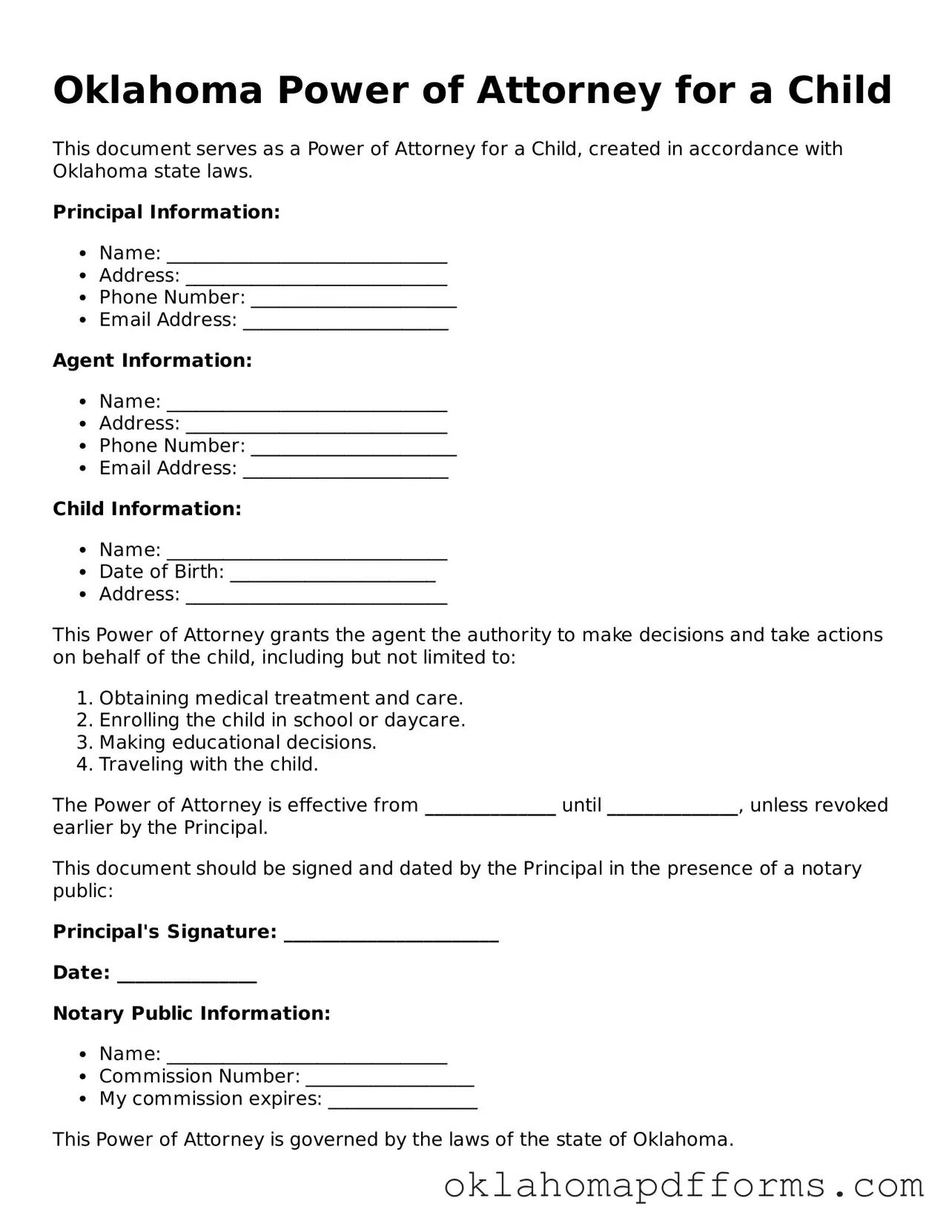What is a Power of Attorney for a Child in Oklahoma?
A Power of Attorney for a Child is a legal document that allows a parent or legal guardian to grant another adult the authority to make decisions on behalf of their child. This can include medical decisions, educational choices, and general care responsibilities. It is particularly useful when parents are temporarily unavailable due to travel, work commitments, or other reasons.
Who can serve as an agent under this Power of Attorney?
The agent can be any trusted adult, such as a relative, family friend, or neighbor. It is crucial to choose someone who is responsible and willing to take on the duties outlined in the document. The agent should also be someone who understands your child’s needs and values.
How long does the Power of Attorney for a Child remain in effect?
The Power of Attorney for a Child can be set for a specific duration or until a particular event occurs, such as the parent’s return from a trip. If no end date is specified, it typically remains in effect until the parent revokes it or until the child reaches adulthood.
Do I need to have the Power of Attorney form notarized?
Yes, in Oklahoma, the Power of Attorney for a Child must be signed in front of a notary public to be legally valid. This step helps ensure that the document is recognized by institutions such as schools and medical facilities.
Can I revoke the Power of Attorney once it is in place?
Absolutely. You can revoke the Power of Attorney at any time as long as you provide written notice to the agent and any relevant third parties. It’s a good practice to inform the agent and any institutions that may have received the document.
What decisions can the agent make on behalf of my child?
The agent can make various decisions, including those related to healthcare, education, and general welfare. However, the specific powers granted can be tailored to your preferences in the document itself. Be clear about what you want the agent to handle.
Is a Power of Attorney for a Child necessary if I have a will?
While a will outlines your wishes after your death, a Power of Attorney for a Child addresses immediate care and decisions while you are still alive. If you anticipate being unavailable for a period, having this document can provide peace of mind and ensure your child is cared for according to your wishes.
What happens if I don’t have a Power of Attorney for my child?
If you do not have a Power of Attorney in place and are unable to make decisions for your child, it may lead to complications. Medical facilities and schools may require legal documentation to act on your behalf. In emergencies, this could delay necessary care or decisions.
Can I use a Power of Attorney for a Child in other states?
While the Power of Attorney for a Child is valid in Oklahoma, other states may have different laws regarding its acceptance. It’s advisable to check the requirements of the state where you plan to use the document. Some states may recognize it, while others may require additional forms.
Where can I obtain a Power of Attorney for a Child form?
You can find the Power of Attorney for a Child form through various resources, including legal websites, local government offices, or family law attorneys. Ensure that the form you use complies with Oklahoma laws and suits your specific needs.

